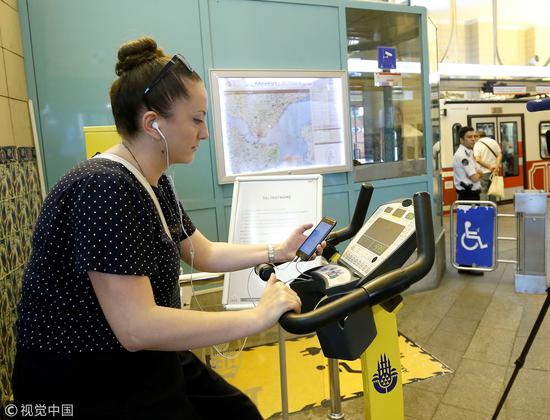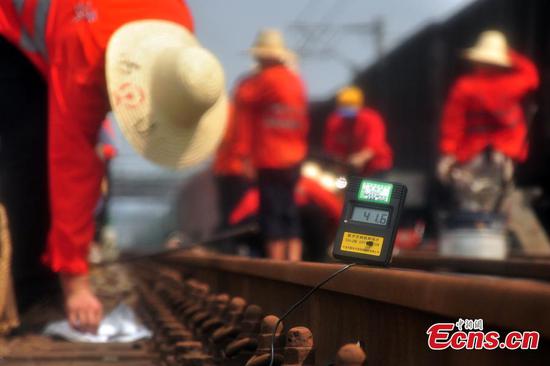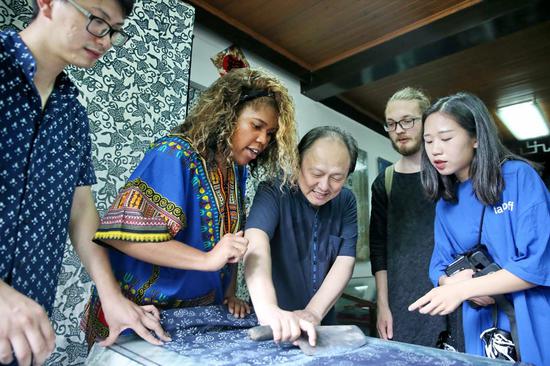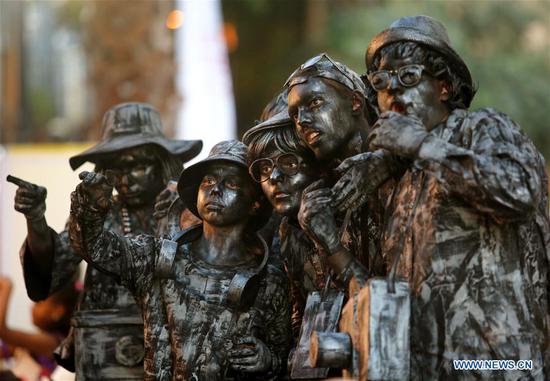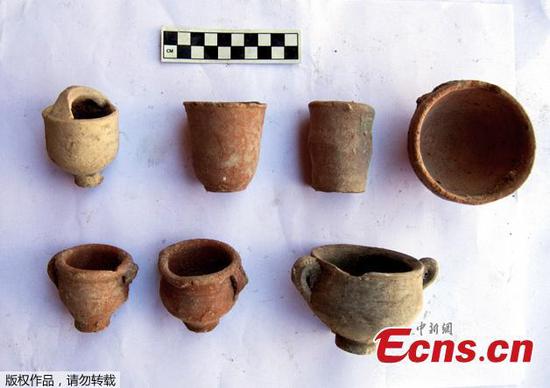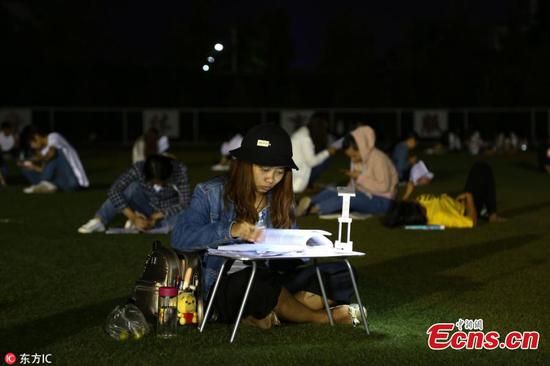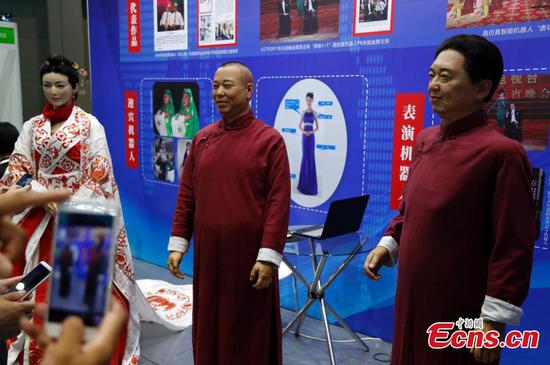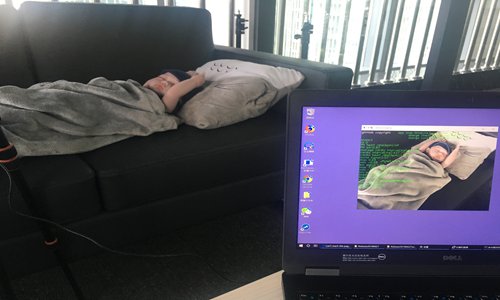
Demonstration of Miaodong detecting a child dummy's face emotions on June 29 (Photo/Courtesy of Glimlab)
A camera with a tripod stands on an office table, projecting what it records on the wall. At first glance, the camera looks ordinary, but once you look into the lens, it analyzes your face and projects details on a screen including your heart rate, breathing patterns and age in just three seconds.
Based on this data, a computer running in the background calculates your emotions and personal details.
This is called Miaodong in Chinese. The emotion recognition system, using a camera, sensors and a visual 3D reconstruction system, was developed by a start-up called Glimlab based in Guiyang, capital of Southwest China's Guizhou Province.
Different from facial recognition, which is only applied in scenes like security checks, check-ins and work attendance checks, the innovation of Miaodong lies in what Glimlab CEO Li Danjiang describes as "the capability of understanding human minds."
Currently, domestic facial recognition devices remain at the stage of comparing photos, Li told the Global Times on June 29.
"For example, most office attendance machines that use facial recognition just compare how many critical points on a human face according to the picture within the system," Li noted.
But Miaodong can be used in a variety of sectors including health, security and childcare. As it can recognize one's heart rate, blood pressure and other health indexes, the system can be used to help assist one's health status, according to Li.
He said the technology has been warranted to a hardware manufacturer in Shenzhen, South China's Guangdong Province, which produces childcare products to be exported to the US.
Xiang Yang, an industry expert at Beijing-based CCID consulting, told the Global Times on Wednesday that the technology is an innovative product of internet visualization in China.
"At present, internet visualization is mostly used in the industry sector, for instance, to detect a variety of flawed products and autonomous driving."
Glimlab is also exploring the application of this technology in public security systems, such as the interrogation of criminals, and has achieved sound results with limited data, Li said.
"But due to the limit of laws and regulations as well as the sensitivity of privacy, we will turn to the consumer market, providing only technology support for third party integrators," he noted.
Data security
Nowadays, the leak of user information is a serious issue. In Guiyang, several companies interviewed by the Global Times said that they can use big data shared by local bureaus and companies or purchased overseas.
For example, US tech firm Intel provides computing resources for Glimlab, including servers and big data. "We can use any data that Intel has, whether about transportation, health, video, voice or text," Li told the Global Times.
If the data has been washed with data masking technology to eliminate sensitive information such as names and addresses, then companies can use this data, according to Xiang.
Data masking refers to the process of changing certain data elements within a data store so that sensitive customer information is unavailable beyond the permitted production environment.
At Glimlab, Li also showed the Global Times the big data the firm purchased overseas, which he said is used to train algorithms.
Despite data masking, people may still be shocked to find out that images of their faces could be used to train such systems without them knowing. "It seems that everyone is transparent nowadays," he said.
But Miaodong uses the neural network computing chip of Intel, which is put on mobile terminals, reducing reliance on cloud computing, Li said.
"This meets real-time computing needs, while protecting user privacy, as sensitive information will not be transmitted to the cloud."
However, Xiang also pointed out that whether data is stored in mobile terminals or the cloud, its security is in the hands of the companies that provide the services.
With increasing importance attached to privacy, domestic internet companies should strengthen compliance and regulate their businesses, he said.














